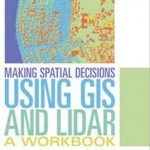In the fast-evolving world of business consulting, startups often seek cutting-edge strategies to enhance efficiency and client engagement.
Geospatial technologies have emerged as pivotal tools in this quest, offering innovative solutions to complex challenges. By leveraging geographic data and spatial analysis, startup consultants can deliver tailored, impactful advice that drives decision-making and fosters growth. This article explores several effective geospatial technologies that can transform the consulting landscape for startups.
Geographic Information Systems (GIS)
Geographic Information Systems (GIS) are at the core of today’s geospatial technology applications. GIS integrates various types of data to analyze and visualize geographic information, enabling consultants to provide insights with a spatial dimension.
- Spatial Analysis and Visualization: GIS tools allow consultants to interpret and display data in ways that are both informative and visually appealing. This capability is crucial when advising clients on location-specific strategies, such as market expansion, site selection, and resource allocation.
- Data Integration: Consultants can combine demographic, environmental, and economic data with spatial information to offer comprehensive analyses. This holistic view helps startups understand potential market dynamics and environmental impacts on their operations.
By using GIS, consultants can enhance their recommendations with precise, data-driven insights, making complex spatial information accessible and actionable for startup clients.
Remote Sensing
Remote sensing technology uses satellite or aerial imagery to gather data about the earth’s surface. It provides consultants with the ability to monitor and analyze trends over large areas and time periods without the need for physical presence on-site.
- Environmental Monitoring: Startups involved in agriculture, forestry, or environmental services can benefit from remote sensing data to track changes and predict future conditions. This information is vital for sustainable planning and operational adjustments.
- Urban Planning and Development: For startups in real estate or urban planning, remote sensing offers data on land use changes, infrastructure development, and urban sprawl, facilitating smarter investment and development decisions.
Remote sensing enhances strategic decision-making by providing consistent, up-to-date information that is crucial for managing long-term projects and assessing environmental impacts.
Location Intelligence
Location intelligence merges geographic data with business data to derive insights that drive business decisions. It is particularly valuable for startups looking to optimize operations and customer outreach.
- Market Analysis: Location intelligence tools help startups identify and target potential markets by analyzing geographic patterns in consumer behavior and competitor locations.
- Supply Chain Optimization: By analyzing geographic data, startups can streamline logistics, reduce transportation costs, and enhance delivery times, thereby improving overall supply chain efficiency.
The strategic use of location intelligence can significantly enhance operational efficiencies and market positioning, offering startups a competitive edge in crowded markets.
Mobile Geographic Information Systems
Mobile Geographic Information Systems (Mobile GIS) extend the capabilities of traditional GIS by incorporating mobile technologies. This integration allows field data to be collected and analyzed in real time, enhancing the responsiveness of consultants to client needs.
- Real-Time Data Collection and Analysis: Consultants can gather and analyze data on-the-go, providing immediate insights and updates to clients. This capability is especially useful in sectors such as construction, environmental monitoring, and public services.
- Enhanced Client Interaction: With mobile GIS, consultants can engage more directly with clients through interactive maps and live data feeds, fostering a more collaborative and transparent relationship.
Mobile GIS technologies ensure that consultants remain agile and responsive, qualities that are crucial in the fast-paced startup environment.
Incorporating advanced technologies such as GIS and remote sensing is just one facet of building a successful consulting startup. For more comprehensive insights and step-by-step guidance on entering the consulting industry, check out this detailed guide at Management
Conclusion
Geospatial technologies are transforming the landscape of business consulting, enabling startups to leverage detailed, location-based insights for enhanced decision-making and strategic planning.
From GIS and remote sensing to location intelligence and mobile GIS, these tools empower consultants to deliver precise, effective guidance that drives efficiency and client engagement. As startups navigate complex market environments, strategically implementing these technologies will be key to sustaining innovation and competitive advantage.

